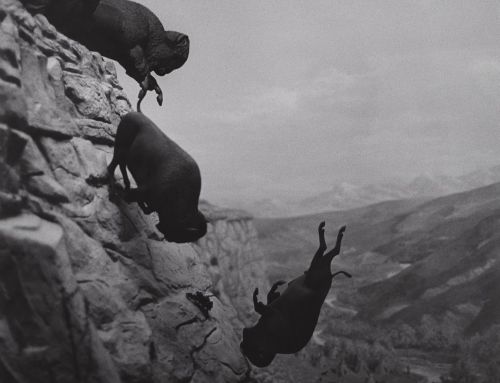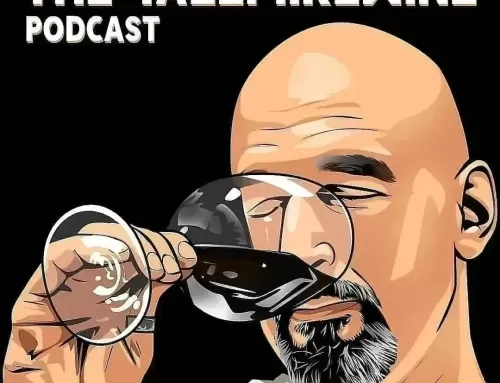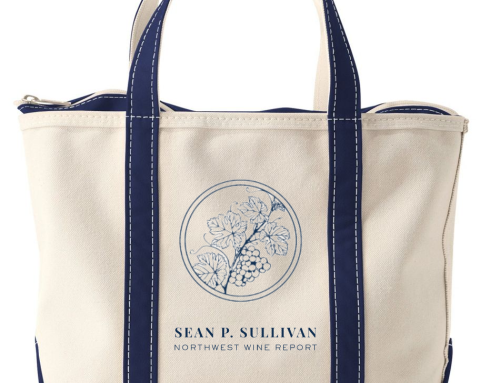Reminder: October’s Virtual Tasting takes place tonight at 7pm Pacific Time. Read about how to participate here.

Let me start by saying that no one I have spoken with – from wineries to distributors to retailers to consumers – believes that the state should continue to have a monopoly on the sale of spirits. The question is whether these initiatives are the way to make the necessary changes to privatize liquor sales given the numerous other changes included in these initiatives. I should also add that no one I have spoken with supports Initiative 1105. I will therefore focus exclusively on Initiative 1100.
The Wineries
The Washington wine industry has flourished over the past ten years, increasing from about 150 wineries in 2000 to almost 700 in 2010. Will the changes proposed in Initiative 1100 accelerate this growth, retard it, or have no effect? This question is not just important to winery owners and their employees. Wine is big business in Washington State with a 4.7 billion dollar economic impact. I have listed below some of the issues raised by winery owners who are for and against Initiative 1100.
Regulation vs. Deregulation
Much of the debate around Initiatives 1100 and 1105 centers around whether many of the current liquor regulations (price setting, prohibiting volume discounting, Charge on Delivery, etc) should be maintained or the system should be widely deregulated. Some feel the current regulations help small wineries compete; others feel these regulations are a hindrance to wineries large and small.
| For 1100 | Against 1100 |
| John Caudill of Overbluff Cellars says, “I support a free market regardless of any perceived protections I may be afforded by an ‘imaginary level playing field.’ There is no such thing. May the strongest survive.” | Martin Clubb, President of the Washington Wine Institute and co-owner of L’Ecole No. 41, says, “To have laws that help little guys get started, get positioned, and get the opportunity to place their products on the shelves without having to pay their way, take credit terms, and give quantity discounts, is a good thing for our wine businesses. It’s obviously worked because those are the rules we have played under. It’s helped create a level playing field for small wineries.” |
Cash on Delivery (COD)
Initiative 1100 would eliminate the provision that retailers and restaurants pay on delivery for alcohol. This would allow – and some wineries feel would require – them to extend credit. This and the lack of written protections for non-payment is a particular concern for many small wineries due to the effect on cash flow. Others feel this change would provide greater flexibility that would help them increase sales.
| For 1100 | Against 1100 |
| John Bell of Willis Hall Wines thinks eliminating COD and other changes proposed in Initiative 1100 will be beneficial for his winery. He says, “I will be able to extend credit on sales to retailers if I want to. I will be able to offer volume discounts if I want to. I will be able to share advertising expenses for functions if I want to. None of these things will be mandatory, and coercion by retailers already is unlawful under existing consumer laws and anti-competition laws.” | Lloyd and Anne Anderson of Walter Dacon Wines write, “Cash flow is king for a small business and having to wait thirty, sixty, or ninety days to get paid could be devastating. Not to mention the fact that some retail licensees could go out of business in this interim period and not pay us at all.” |
Paying for Placements & Promotions
Initiative 1100 would remove restrictions that prevent retailers from charging for shelf placement and from receiving promotional items. Some feel that these changes would put small wineries that are not able to ‘pay to play’ at a competitive disadvantage; others feel that it would allow them to innovate and compete.
| For 1100 | Against 1100 |
| John Morgan of Lost River Winery believes that the changes regarding promotion would help his winery. He says, “Passage of I-1100 would dramatically increase my ability to innovate particularly as regards co-promotions with my customers and particularly low cost or no cost co-promotions.” | Javier Alfonso of Pomum Cellars says, “Grocery stores will be allowed to bargain for shelf placements. Large grocery corporations will now have an incentive to cater to the highest bidder. The result will be that only the larger, better financed producers will be represented on premium shelves.” |
Consumer Choice & Cost
The biggest argument for 1100 from a consumer perspective is that it will increase consumer choices and lower costs. Some wineries think this will happen; some think that 1100 may actually decrease wine choices in larger stores and increase prices for small production wines due to the costs associated with extending credit.
| For 1100 | Against 1100 |
| One winery owner, who wished to remain anonymous, believes that 1100 will lead to increased selection that will ultimately benefit his winery. He says, “I already buy my alcohol at specialty stores because usually the grocery stores don’t carry what I want. Now I expect I will be able to choose from twenty different Armagnacs rather than the two cheap Armagnacs I usually find at a state store. So where do I buy my Armagnac? On-line from California. I think that will change and now I can give my Armagnac patronage to a local store. I predict that this will occur for beer and wine as well.” | Javier Alfonso of Pomum Cellars says that current liquor laws allow retailers to support small producers. He says, “Everyday grocery shops such as QFC, Top Foods or even Fred Meyer have a great local small producer selection… This is so because the grocery upper management can’t legally benefit from the selections made by the local stewards. That would change under 1100 where deals will be made at the corporate level between large companies.” |
Final Thoughts
Wineries for Initiative 1100 believe that it will either be positive for their business or that at least won’t have a negative effect. Wineries against 1100 believe that the effect will be negative and also that the initiative process is the wrong way to make the necessary changes.
| For 1100 | Against 1100 |
| One anonymous winery owner says, “I’ve heard a lot of predictions around this, some of them very disaster-specific. As far as I am concerned, that’s all speculation. We won’t truly know what happened until it has occurred. In general, as a small winery, I think business will proceed as usual for me. I like to think that if 1100 passes I will have more flexibility, hence more opportunities as a winery owner. I do know that it certainly won’t put me out of business.” | Denise Slattery and Steve Michener of Trio Vintners write, “We both took more time to examine this initiative than any other we’ve ever voted on. At first, as consumers, we were in favor of it. Getting the state out of the price gouging, I mean liquor, business is a great idea. But as we dug deeper and saw the repercussions on our business we became opposed to it. Mostly it is a classic case of a flawed initiative, written by lobbyists for the benefit of their clients. When we lived in California we saw pseudo-populist initiatives like this one ruin the state.” |
Next up, Part II – the positions of distributors and retailers. See my position on these initiatives here. See other informational posts on these initiatives here.
And, yes, I want to be done with these initiatives as much if not more than you do but…







Sean, thank you for these posts. They have been really helpful in sorting through the details.
Anon, glad to hear that they have been helpful because I can't say I've enjoyed working on them! :)
Very informative, thank you for helping my brain to understand these propositions.
I bet most consumer don't have time to read between the line.
Your posts on these Initiatives has been most helpful. Both for me and for our patrons. Great education!
Sean, This is a great rundown on major items in the bill. As you know I personally believe that this initiative, if passed, will place a huge burden on small producers. Doing business will get more expensive with retailers and unless well financed independent retailers pop up everywhere we will see the variety of local producers drop in favor of corporate brands. I am really looking forward to the next article! Thank you for all the hard work!
Thanks, SPS. Good stuff, as always.
All, thank you for your support.
COD means "cash on delivery", not "charge on delivery".
Thanks for the information, was unclear on how I was going to vote, and with this and other information you have passed on to us i will be able to make an educated choice.
Anon 8:46pm, thanks for the catch. I have fixed this.